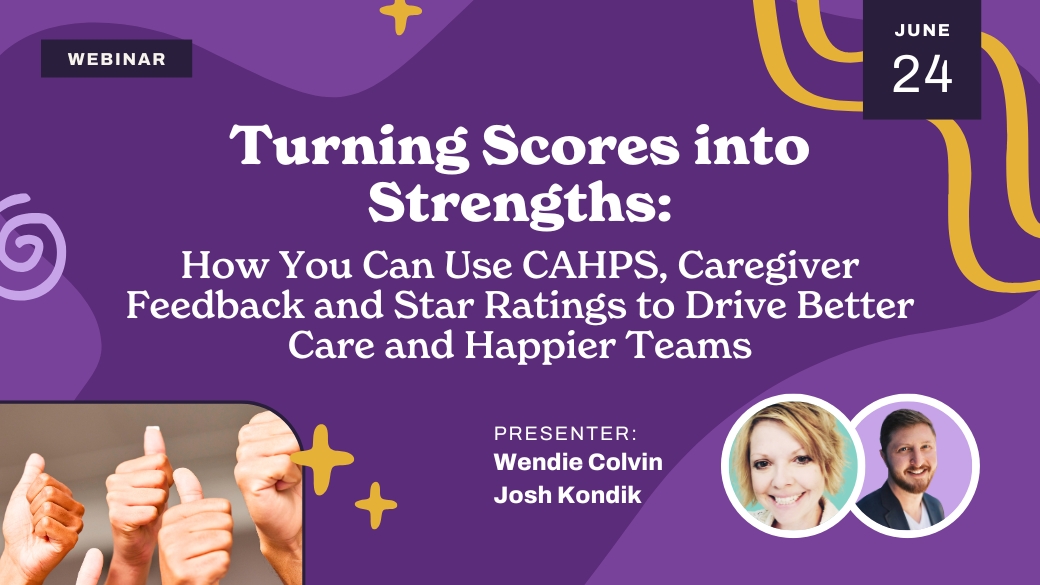Tips for Client-Centered Customer Service

One way to approach client-centered care is to ensure your clients are having the best healthcare experience of their lives. This requires dusting off your “customer service” skills–and then polishing them to the shiniest possible finish!
This month at In the Know, our inservice, Client-Centered Care, is being featured. True client-centered care means:
- Health care professionals understand that clients are consumers who have choices and need clear, accurate information.
- The client has a voice that overrides the care team’s schedule.
- Care isn’t just delivered by healthcare professionals. There must be opportunities for loved ones to be involved.
- A healing physical environment, food, spirituality, and emotional support are just as important as pills, monitors and machines.
One way to approach client-centered care is to ensure your clients are having the best healthcare experience of their lives. This requires dusting off your “customer service” skills–and then polishing them to the shiniest possible finish!
Here at In the Know, we have an amazing example of exceptional customer service in Evan, our Director of Customer Care. Time after time, I hear praise for Evan from customers who are delighted by his warm personality, his willingness to go above and beyond and his personalized service. So, who better to call on to give us five fabulous tips to help perfect our customer service skills? Here’s what Evan had to say:
“My top five tips? They’re pretty basic but they have served me well in my interactions with customers. While my contact with customers is over the phone, I’ll pass these tips along in a way that relates to client care.”
Set the Tone
Remember that the first five to ten seconds of your interaction with a client will set the tone for the kind of relationship you have with the client. It’s important to have a comfortable, friendly greeting, but one that also sounds genuine and unique to that client.
Listen Up
From the beginning of your interaction, prove that you are a good listener. This shows clients that you care about their situation. Allow them to dictate the conversation early on. Doing so helps you identify their needs, as well as build trust in your relationship.
Be Curious
Continue to ask open-ended questions, questions that take more than a “yes” or a “no” answer. This, too, shows clients that you care about their needs. And, remember to read between the lines. I have to do this by listening to a customer’s tone of voice, but you get to see your clients in person. So, be curious about their nonverbal communication, too. By asking questions and using your observation skills, you will be poised to provide client-centered care.
Make It Personal
Try to use the client’s name several times throughout your interaction. This does so much for your working relationship with a client and it is so easy to do!
Express Gratitude
Thank clients for letting you care for them. Remember that every client has a choice when it comes to their health care providers, and they have chosen you. A little customer service can go a long way. Even a simple, kind gesture, like saying thank you, can leave a lasting impression on your client.




